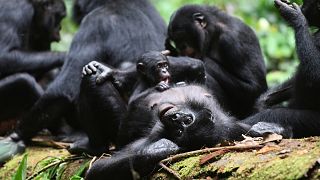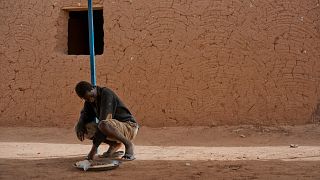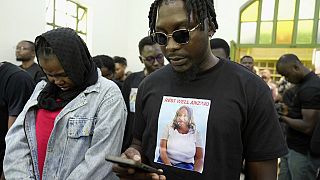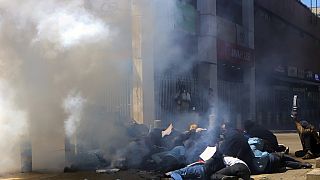Kenya
Literary fans all over the world are paying tribute to Binyavanga Wainaina, the award-winning Kenyan writer who died on Tuesday night, aged 48.
Wainaina challenged stereotypes of Africa with biting satire and took on prejudice by documenting his life as an openly gay man.
The author, essayist and campaigner, who also championed African literature through the Kwani Trust he founded with other writers, passed away in Nairobi on Tuesday, the organisation’s chairman, Tom Maliti, said.
Wainaina’s literary genius
Wainaina’s 2005 essay “How to Write About Africa”, was a pointed and hilarious lesson to would-be journalists and historians. Its compilation of the absurd, yet all-too-common, clichés was a call for more nuanced portrayals.
“Among your characters you must always include The Starving African, who wanders the refugee camp nearly naked, and waits for the benevolence of the West,” Wainaina wrote in satirical instructions to aspiring writers.
“Her children have flies on their eyelids and pot bellies, and her breasts are flat and empty. She must look utterly helpless. She can have no past, no history; such diversions ruin the dramatic moment.”
Wainaina won the prestigious Caine Prize for African Writing in 2002 for his short story collection “Discovering Home” and went on to set up Kwani?, a literary journal dedicated to publishing new writers from Africa.
A rich legacy
“His legacy is Kwani? and the many new writers who were contributors to that journal and for whom opportunities opened up,” said Maliti.
“Kwani? inspired a generation of writers younger than Binyavanga to also write poetry, short stories, novels and writing became something that people believed was a career that they could pursue.”
Wainaina, who announced in 2016 that he was HIV positive, had been in and out of the hospital for the past year and suffered several strokes, Maliti said. “He had been ailing for a while,” he added, without going into further detail.
Wainaina was also known for his decision to live as an openly gay man in Kenya, where gay sex is illegal under a colonial-era penal code and homosexuality is taboo. A high court ruling on whether to uphold that law is due on Friday.
Fans pay tributes
Both new and established writers posted tributes on Twitter, many of them noting Wainaina’s influence on their work.
“His writing packs a punch, makes you nostalgic and then leaves you unsettled,” wrote Archie Okeyo, who describes herself on her Twitter profile as a Kenya-based writer.
Binyavanga Wainaina was the public intellectual we needed but didn't deserve. The world is worse off today without him to challenge our prejudices & defend the humanity of everyone. And now his watch is ended
— Larry Madowo (@LarryMadowo) 22 mai 2019
This writer, Binyavanga Wainaina, knows how to get you to sit down, shut up and think. One of the bravest most audacious people I know. https://t.co/WiMUhbMLtN
— Nnedi Okorafor, PhD (@Nnedi) December 1, 2016
I remember the early days, from SA to Kwani? open mic at Yaya. Audacity of possibilities. You started something special. You made important contributions to our writing space. You lived your truth. Now go in peace bro. “Binyavanga Wainaina”
— Oyunga Pala (@realoyungapala) May 22, 2019












Go to video
Eliud Kipchoge returns to the London Marathon
Go to video
Kenya: Ant smuggling suspects set to be sentenced on May 7
01:16
Africa mourns Pope Francis, a voice for peace and justice
Go to video
Kenyan runners win both male and female races at Boston Marathon 2025
Go to video
Who will be the next pope? A look at potential candidates
Go to video
Nigerian Court finds club and football federation negligent of Chineme Martins’ death